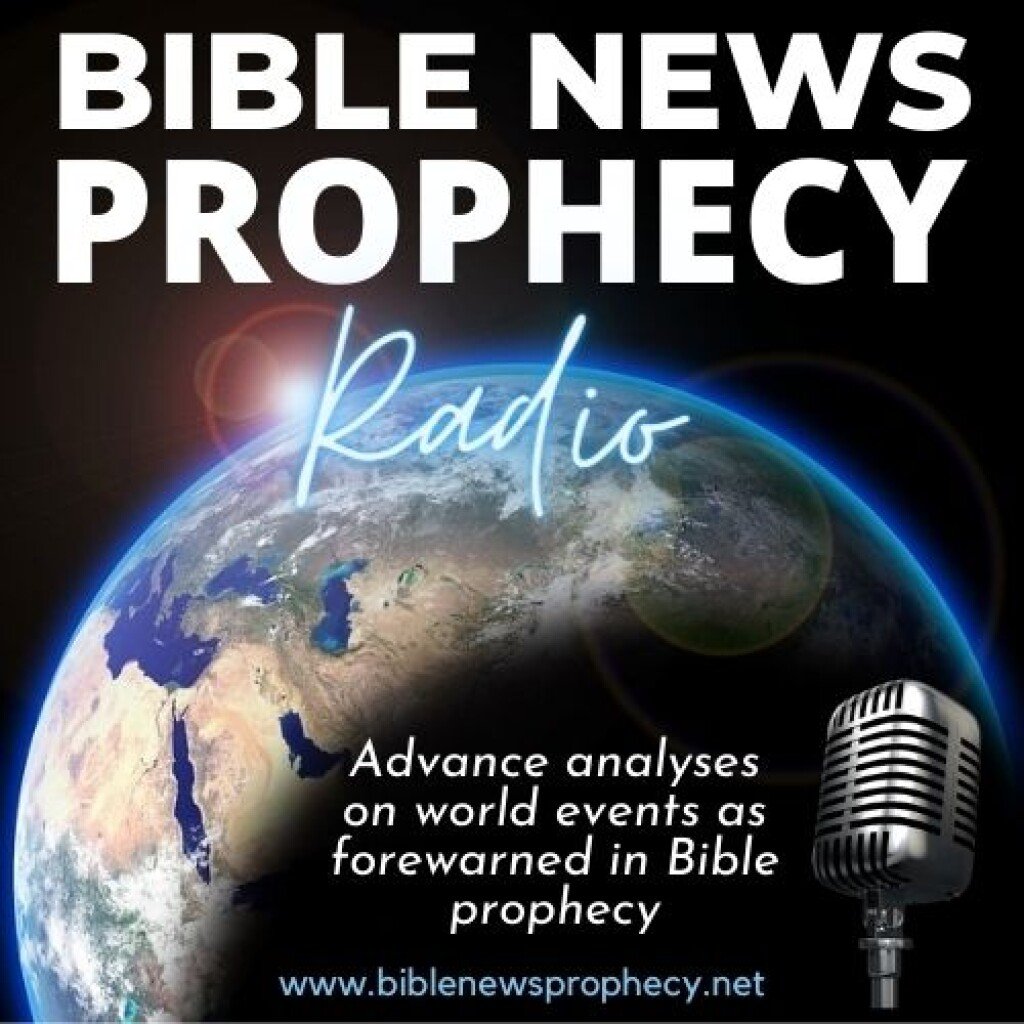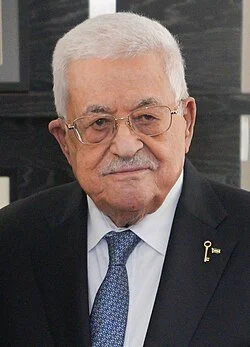John Chrysostom (photo by Joyce Thiel)
Eastern Orthodox Bishop John Chrysostom died on September 14, 407.
The Catholic Encyclopedia teaches the following about him:
St. John Chrysostom (Chrysostomos, “golden-mouthed” so called on account of his eloquence). Doctor of the Church, born at Antioch, c. 347; died at Commana in Pontus, 14 September, 407. John — whose surname “Chrysostom” occurs for the first time in the “Constitution” of Pope Vigilius (cf. P.L., LX, 217) in the year 553 — is generally considered the most prominent doctor of the Greek Church and the greatest preacher ever heard in a Christian pulpit. His natural gifts, as well as exterior circumstances, helped him to become what he was … his famous and magnificent commentaries, which offer us such an inexhaustible treasure of dogmatic, moral, and historical knowledge of the transition from the fourth to the fifth century. These years, 386-98, were the period of the greatest theological productivity of Chrysostom, a period which alone would have assured him for ever a place among the first Doctors of the Church.
Chrysostom has deserved a place in ecclesiastical history, not simply as Bishop of Constantinople, but chiefly as a Doctor of the Church. Of none of the other Greek Fathers do we possess so many writings. We may divide them into three portions, the “opuscula”, the “homilies”, and the “letters”…eight “Against the Jews”… A great number of “single homilies” deal with moral subjects, with certain feasts…
As an exegete Chrysostom is of the highest importance … it would be a mistake to underrate the great theological treasures hidden in his writings. From the very first he was considered by the Greeks and Latins as a most important witness to the Faith. (Baur, Chrysostom. “St. John Chrysostom.” The Catholic Encyclopedia. Vol. 8. Nihil Obstat. October 1, 1910. Remy Lafort, S.T.D., Censor. Imprimatur. +John Cardinal Farley, Archbishop of New York. New York: Robert Appleton Company, 1910. 11 Aug. 2013 <http://www.newadvent.org/cathen/08452b.htm>)
Yes, he wrote more than many. His eight “Against the Jews” homilies came during the time that The Catholic Encyclopedia teaches “were the period of the greatest theological productivity” by John Chrysostom. But those were racist and antibiblical.
While some apparently thought John, the Bishop of Constantinople, was a captivating speaker, he often did not understand the Bible nor properly explain it.
According to a 9/20/07 article by Zenit, on September 19, 2007 the then Pope’s “reflection at the general audience focused on St. John Chrysostom”–he praised him so much in that homily that he wants everyone to “pray that the Lord render us docile to the lessons of this great teacher of the faith.” A great teacher of what faith?
He is considered to be so important, he is one of the four ‘doctors of the church’ who is shown supporting what is called the Cathedra Petri (Chair of Peter) in St. Peter’s Basilica in Vatican City. This is a structure that I have pointed out has been called Satan’s Throne (see Another view of ‘Satan’s Throne’?).
Here is some of what John Chrysostom publicly preached on September 5, 387 A.D.:
The festivals of the pitiful and miserable Jews are soon to march upon us one after the other and in quick succession: the feast of Trumpets, the feast of Tabernacles, the fasts. There are many in our ranks who say they think as we do. Yet some of these are going to watch the festivals and others will join the Jews in keeping their feasts and observing their fasts. I wish to drive this perverse custom from the Church right now …
If the Jewish ceremonies are venerable and great, ours are lies… now that the Jewish festivals are close by and at the very door, if I should fail to cure those who are sick with the Judaizing disease. I am afraid that, because of their ill-suited association and deep ignorance, some Christians may partake in the Jews’ transgressions; once they have done so, I fear my homilies on these transgressions will be in vain. For if they hear no word from me today, they will then join the Jews in their fasts; once they have committed this sin it will be useless for me to apply the remedy.…
Does God hate their festivals and do you share in them? He did not say this or that festival, but all of them together. …
If any of you, whether you are here present or not, shall go to the spectacle of the Trumpets, or rush off to the synagogue, or go up to the shrine of Matrona, or take part in fasting, or share in the Sabbath, or observe any other Jewish ritual great or small, I call heaven and earth as my witnesses that I am guiltless of the blood of all of you.(John Chrysostom. Homily I Against the Jews I:5;VI:5;VII:2, VIII:1. Preached at Antioch, Syria in the Fall of 387 AD. Medieval Sourcebook: Saint John Chrysostom (c.347-407) : Eight Homilies Against the Jews. Fordham University. http://www.fordham.edu/halsall/source/chrysostom-jews6.html 12/10/05).
THE WICKED AND UNCLEAN FAST of the Jews is now at our doors. Though it is a fast, do not wonder that I have called it unclean. What is done contrary to God’s purpose, be it sacrifice or fast, is the most abominable of all things. Their wicked fast will begin after five days. Ten days ago, or more than ten, I anticipated this and gave an exhortation with the hope it would make your brothers safe. Let no one find fault and say my discourse was untimely because I gave it so many days beforehand. When a fever threatens, or any other disease, physicians anticipate this and with many remedies make safe and secure the body of the man who will be seized by the fever; they hurry to snatch his body from the dangers which threaten it before the patient experiences their onset.
Since I, too, see that a very serious disease is going to come upon you, long beforehand I gave you solemn warning so that you might apply corrective measures before the evil attacked. …
But now that the devil summons your wives to the feast of the Trumpets and they turn a ready ear to this call, you do not restrain them. You let them entangle themselves in accusations of ungodliness, you let them be dragged off into licentious ways. (John Chrysostom. Homily II Against the Jews I:1; I:2, III:4. Preached at Antioch, Syria on Sunday, September 5, 387 A.D.).
AGAIN THE JEWS, the most miserable and wretched of all men, are going to fast, and again we must make secure the flock of Christ. (IV:I:1)
So also the Law fixed the feast of Tabernacles (John Chrysostom. Homily IV Against the Jews IV:3. Catholic Christians of Antioch Turning to Sabbath and The New Moon Day and Other Holy Days. 387 A.D.).
Their trumpets were a greater outrage than those heard in the theaters; their fasts were more disgraceful than any drunken revel. So, too, the tents which at this moment are pitched among them are no better than the inns where harlots and flute girls ply their trades. Let no one condemn me for the boldness of my words; it is the height of boldness and outrage not to suspect the Jews of these excesses. Since they stubbornly fight against GOD and resist the HOLY SPIRIT, how can we avoid the necessity of passing such sentence upon them?
This festival used to be a holy one when it was observed according to the Law and at God’s command. But this is no longer true. All its dignity has been destroyed because it is observed against God’s will. (VII:I:2-3)
Indeed, The fasting of the Jews, which is more disgraceful than any drunkenness, is over and gone. (VIII:I:5)
John Chrysostom preached against the Fall holy days, because some who professed Christ were observing them. Specifically he mentioned the Feast of Trumpets, Day of Atonement (Fasts above), and the Feast of Tabernacles–which he admitted that the Law, meaning instructions in the Old Testament, enjoined them.
It is interesting to note that John Chrysostom realized that the second-century church kept Passover the same time as the Jews did (this was even true in the early second century in Rome). Notice also something related to his ‘Oratory on the Passover”:
Passover on the 14th of the first month of God’s Sacred Calendar. Chrysostom, who wrote several centuries after the apostles, admitted that “formerly it [the Passover] prevailed also at Antioch” from where Paul began many of his apostolic journeys. (Hoeh H. Four Thousand Years of Easter. Tomorrow’s World, March 1971–taken from Chrysostom’s Oratory on Passover)
Notice also the following:
One more instance will shew how Chrysostom could found a spiritual meaning upon a history which he had discussed as such. “Why,” he asks, “did the Israelites eat the Passover with loins girded? Shall I give you the figurative or the historical explanation? It is the better plan that you should hear the history first.”—So after a description of the historical type, he proceeds;—“We too eat a Passover, even the Christ. We too should eat it with shoes on our feet and loins girded, that we too may be ready for our Exodus, our departure hence. Let none of those who eat this Passover look to Egypt, but to Heaven, to the Jerusalem which is above. For this cause thou so eatest it, to teach thee, that when thou dost but begin to eat the Passover, thou oughtest to be departing and to be on thy way” (xi. 176). (Chrysostom: A Study In The History Of Biblical Interpretation CHAPTER II CHRYSOSTOM AS AN INTERPRETER OF THE OLD TESTAMENT. Copyright ©1999-2018 e-Catholic2000.com https://www.ecatholic2000.com/chase/untitled-04.shtmlaccessed 09/06/19)
So, John Chrysostom realized that the ‘Jewish Passover,’ which is recorded in Leviticus 23 with the biblical holy days, ended up having Christian application.
John Chrysostom also knew that the Catholic Church still kept Pentecost and apparently also realized that it had Christian application.
Thus by preaching what he did against the biblical Holy Days, John Chrysostom is preaching against his own church as the Roman and Orthodox Catholics claim to keep both Passover (though on a different date, and with a different name) and Pentecost–as both of those festivals would be part of “all of them together.”
Furthermore, early Christians did keep the Fall Holy Days, as did, for a time, certain Eastern Orthodox/Roman Catholic saints such as possibly their bishop Methodius (for details, please see Did Early Christians Observe the Fall Holy Days?).
Recall that John Chrysostom, in this case, somewhat correctly stated,
“If the Jewish ceremonies are venerable and great, ours are lies.“
Does the Bible refer to any day as great?
Yes.
Notice that the New Testament calls one of the so-called “Jewish” holy days “great.” Notice the following from both a Protestant and a Catholic translation:
On the last day, that great day of the feast, Jesus stood and cried out (John 7:37, NKJV)
And in the last, the great day of the festivity JESUS stood, and cried (John 7:37, Rheims New Testament).
So who is right?
Those who follow Jesus’ and the Apostle Paul’s practices or those who condemn them?
So which days should be observed? Which have a “great day” according to the Bible? Which days are lies?
John Chrysostom supported days with pagan ties such as Christmas and Easter. His logic for Christmas on December 25th was clearly wrong and based upon lies and misinformation that he spread. So, it should be obvious that God’s days are not lies, but his (and those of churches who adopted those days that he promoted) were clearly lies.
Related to him, the Continuing Church of God put together the following sermon on its ContinuingCOG channel:
1:11:35
John Chrysostom and Holy Days
Many in the Greco-Roman Catholic and Protestant churches consider that John Chrysostom was “Christianity’s greatest preacher.” Was this eloquent speaker a faithful Christian? Was he an anti-Semite? Did he endorse or condemn God’s Holy Days? Did Jesus, the Apostle Paul, Polycarp, and early Christians keep the biblical holy days? Which days are great? Which are essentially pagan-derived? What about Passover, Easter, Christmas, Pentecost, Lent, the Feast of Trumpets, the Day of Atonement, and the Feast of Tabernacles? What about Minerva and Mithras? What did John, called the golden-mouthed, say or write relate to these topics? What about his eight ‘Against the Jews’ or ‘Against the Judaizers’ homilies/sermons? Did Adolf Hitler’s supporters cite John Chrysostom related to their anti-Jewish practices? Should faithful Christians keep God’s holy days today? Dr. Thiel addresses these matters.
Here is a link to the sermon: John Chrysostom and Holy Days.
John Chrysostom did not teach nor practice original Christianity.
But we in the Continuing Church of God do.
Several items of possibly related interest may include:
John Chrysostom, Bishop of Constantinople and Antisemite
John Chrysostom and Holy Days (sermon)
Should You Keep God’s Holy Days or Demonic Holidays? This is a free pdf booklet explaining what the Bible and history shows about God’s Holy Days and popular holidays.
Two related sermons
Eastern Orthodox 40+ Similar Beliefs to the CCOG (sermon)
Beliefs of the Original Catholic Church
Sermon Series related to the free online book above:
Did Early Christians Observe the Fall Holy Days?
Should Christians keep the Fall Biblical Holy Days? (sermon)
The Book of Life and the Feast of Trumpets?
Related sermon videos
Feast of Trumpets: Why Should You Keep It?
Seven Trumpets: Jesus Returns (sermon)
The Day of Atonement–Its Christian Significance
Related sermons
Related sermons
Feast of Tabernacles’ Sites for 2023 This is information on the Feast of Tabernacles’ sites for the Continuing Church of God in 2023
The Feast of Tabernacles: A Time for Christians?
The Feast of Tabernacles: A Time for Christians? (sermon)
The Feast of Tabernacles: A Time for Christians?
3 related sermons
The History of Early Christianity
Christians: Ambassadors for the Kingdom of God, Biblical instructions on living as a Christian
2 related sermons
The Ten Commandments: The Decalogue, Christianity, and the Beast
The Ten Commandments and the Beast of Revelation (sermon)
Sermons and shorter messages based on the free online book above
3 videos related to the free online book above
Evolution is NOT the Origin of Life (sermon video)
Big Bang: Nothing or Creator? and A Lifegiver or Spontaneous Evolution? (animation videos)
Christians: Ambassadors for the Kingdom of God, Biblical instructions on living as a Christian
Christians are Ambassadors for the Kingdom of God (sermon)
Beliefs of the Original Catholic Church
Sermon Series related to the free online book above:
Hope of Salvation: How the Continuing Church of God Differs from Protestantism
Sermon series related to the free online book above:
The MYSTERY of GOD’s PLAN: Why Did God Create Anything? Why Did God Make You?
Sermon series related to the free online book above:
Sermon series related to the free online book above:
Universal Offer of Salvation 2: Jesus Desires All to be Saved
Mysteries of the Great White Throne Judgment (Universal Offer of Salvation part 3)
The Gospel of the Kingdom of God
Sermons related to the free online book above:
The Fantastic Gospel of the Kingdom of God!
The Kingdom of God is the Solution
The Gospel of the Kingdom: From the New and Old Testaments
Where is the True Christian Church Today?
Where is the True Christian Church? (sermon)
Continuing History of the Church of God
Sermon series related to the free online book above:
LATEST NEWS REPORTS
LATEST BIBLE PROPHECY INTERVIEWS


























